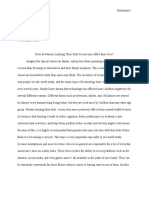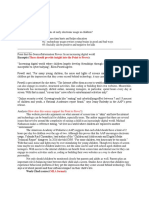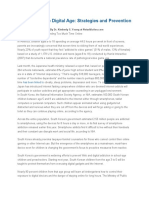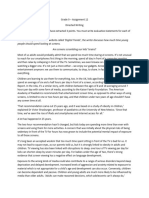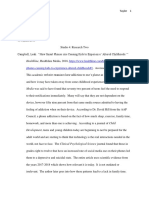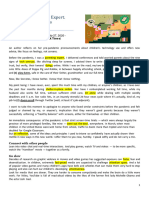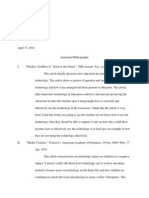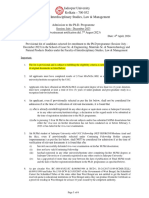0% found this document useful (0 votes)
79 views4 pagesScreen Time Limitation Policies
1) China is introducing policies to limit screen time to 2 hours per day for minors, while the US has no laws and leaves limits to parental choice. Both approaches have pros and cons.
2) Limiting screen time aims to reduce addiction and encourage other activities like studying, but can negatively impact mental health if overdone. It may also help reduce obesity and cyberbullying.
3) An ideal approach would incorporate research on impacts and gather input from children and parents to guide limits, as both fully limiting or fully unrestricted approaches have flaws.
Uploaded by
taavi.k.kasperiCopyright
© © All Rights Reserved
We take content rights seriously. If you suspect this is your content, claim it here.
Available Formats
Download as DOCX, PDF, TXT or read online on Scribd
0% found this document useful (0 votes)
79 views4 pagesScreen Time Limitation Policies
1) China is introducing policies to limit screen time to 2 hours per day for minors, while the US has no laws and leaves limits to parental choice. Both approaches have pros and cons.
2) Limiting screen time aims to reduce addiction and encourage other activities like studying, but can negatively impact mental health if overdone. It may also help reduce obesity and cyberbullying.
3) An ideal approach would incorporate research on impacts and gather input from children and parents to guide limits, as both fully limiting or fully unrestricted approaches have flaws.
Uploaded by
taavi.k.kasperiCopyright
© © All Rights Reserved
We take content rights seriously. If you suspect this is your content, claim it here.
Available Formats
Download as DOCX, PDF, TXT or read online on Scribd
/ 4



